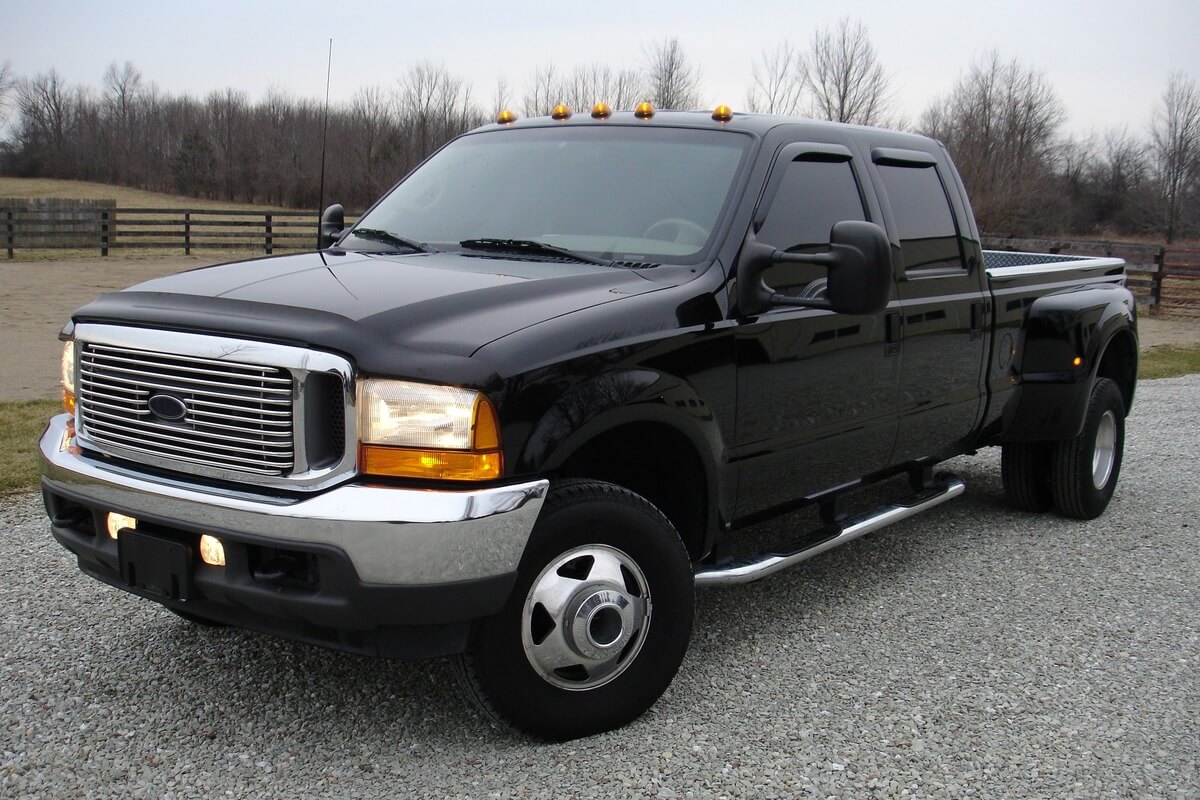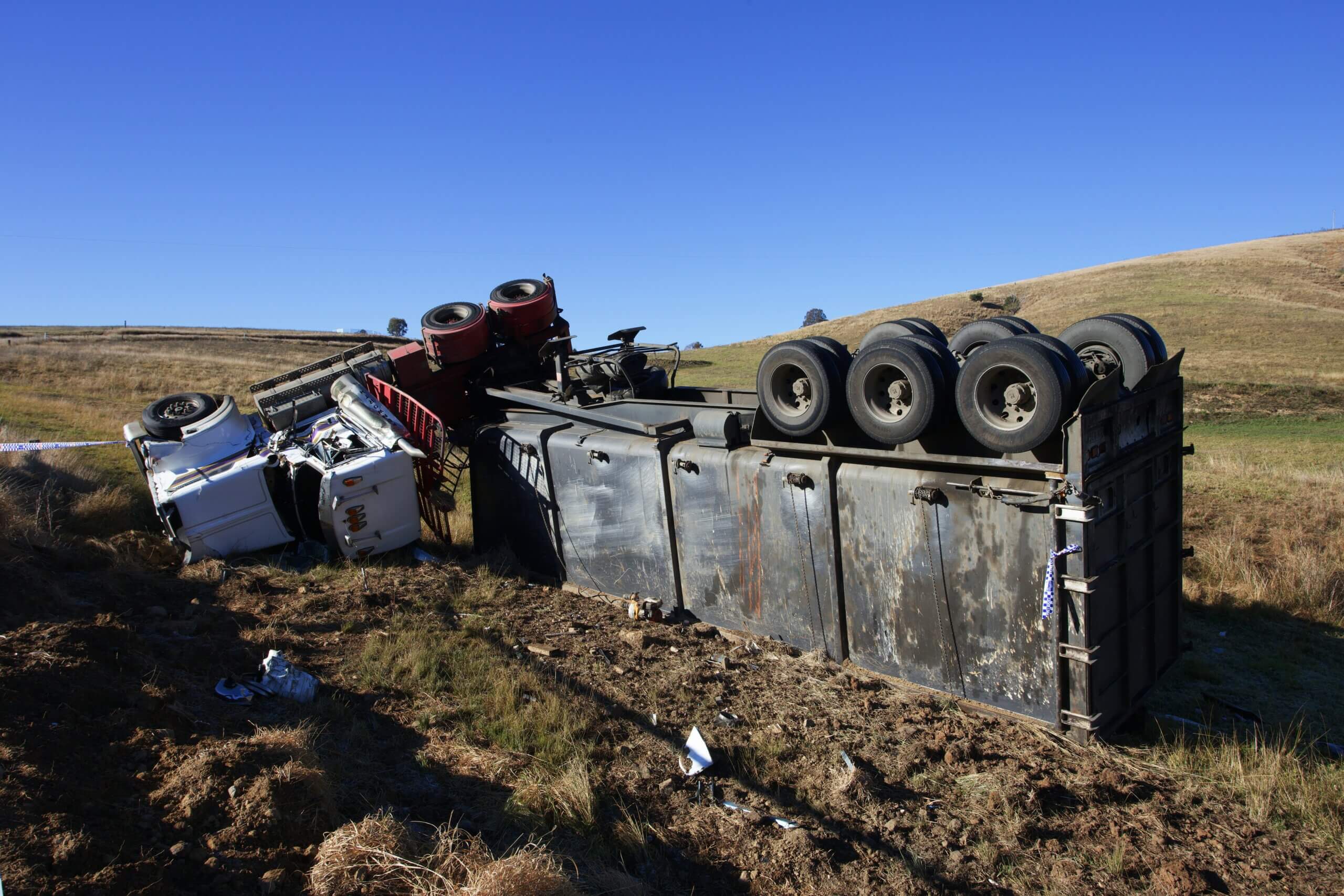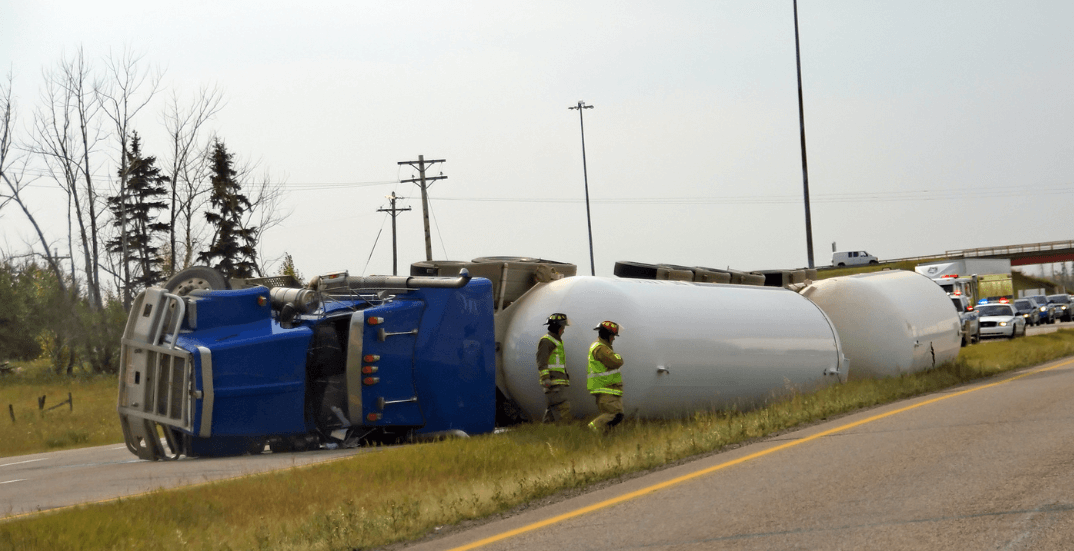
How can an Overloaded Truck Cause an Accident?
An overloaded semi-truck can cause severe issues for semi-truck drivers, other drivers on the road, pedestrians, and public infrastructure.
Handling Issues
Semi-truck drivers provide an invaluable service to many of us as they spend countless hours behind the wheel of a truck each year shipping goods across the country. Unfortunately, even the most well-trained driver cannot handle an overloaded semi-truck. Without adhering to proper weight restrictions, a semi-truck must take unreasonable precautions to ensure the vehicle does not cause an accident.
An overloaded semi-truck needs ample space to accelerate safely and decelerate because extra weight places stress on the brakes to slow down and on the drivetrain to speed up adequately. Further, heavier trucks are tough to handle, especially in high-traffic areas like cities or tight areas like commercial corridors.
Tire Blowouts
Unlike most passenger vehicles, semi-trucks are designed with weight and durability in mind. As a result, semi-trucks can incur hundreds of thousands of miles more than the average sedan or sports utility vehicle (SUV), which is partially attributed to robust tires. However, even the most well-designed industry-leading tires cannot have excessive weight, as provided by the manufacturer.
Thus, by overloading a semi-truck, the driver and shipping company risk the tires exploding or bursting during the semi-trucks operation. A blown-out tire can cause the semi-truck driver to lose control of the vehicle and collide with other vehicles on the road. Also, a blown tire can cause debris, including pieces of the tire itself, to hit other vehicles on the roadway.
Rollover Accidents
Weight restrictions on semi-trucks also prevent the truck from swaying off balance and tipping over while in operation. Because semi-trucks are heavy and tall, they must maintain a particular center of gravity to ensure the vehicle remains balanced. Without correctly calculating the weight of the cargo and the weight tolerance of the semi-truck, heavy loads could cause the semi-truck to lose balance while driving on a highway—causing an accident.
Mechanical Failure
An overloaded semi-truck can experience several critical mechanical failures while operating on the road that has nothing to do with the durability of the tires. Mechanical failures include:
- Broken axles and suspension systems.
- Malfunctioning transmissions and drive trains.
- Unreliable brakes.
Harm to Infrastructure
Local, state, and federal laws provide a comprehensive regime of laws that dictate the certain weight semi-trucks may carry and in what areas. Overweight trucks can gradually erode critical infrastructures like roads and bridges. Over time, semi-trucks can cause road defects, like potholes and cracks, or degrade the ability of a bridge to support weight, which can cause a collapse. This impacts semi-truck drivers and may directly or indirectly cause car accidents and traffic delays.
Commercial Truck Accident Statistics
Although large commercial semi-trucks provide a valuable role in the U.S. economy, their increased presence on the road makes them dangerous to other truck drivers, passenger car motorists, and pedestrians. According to data compiled by the National Safety Council (NSC) for 2020:
- Large commercial trucks accounted for 4,842 fatal crashes throughout the U.S., which is a 4% decrease from 2019 but a 33% increase from 2011.
- Approximately 147,000 of all roadway injuries were caused by large truck crashes.
- Large commercial trucks accounted for 9% of vehicle crashes, but only accounted for 4% of the total registered vehicles in the U.S.
Determining Liability
Unlike most passenger vehicle accidents where two private owners experience an accident, knowing how to address the liable party in a commercial semi-truck accident can be complicated. Thus, one or more of the categories of potential parties below may be fully or partially liable for the accident.
Commercial Semi-Truck Owner
In most negligence cases, the owner and proprietor of the semi-truck and the truck’s business assume legal responsibility for accidents involving its property. This is commonly referred to as vicarious liability. It is the responsibility of the owner of the truck to ensure that its equipment is used lawfully and properly maintained and its employees are adequately trained. Further, commercial shipping companies that own their semi-trucks will almost always have insurance coverage for accidents.
Commercial Semi-Truck Driver
Sometimes, the owner and operator of the semi-truck may shift a portion of their liability for accidents if the truck driver was grossly negligent in their actions. All negligence cases revolve around understanding a party’s duty of care to another.
A semi-truck driver must reasonably operate their truck in a way that conforms with the rules of the road and safely. However, if the driver’s actions are considered an extreme departure from that duty (knowingly carrying an excessive amount of weight on the semi-truck), the driver may be held liable for accidents resulting from the overloaded truck.
Cargo Owner
Sometimes, a semi-truck driver may make multiple trips with different cargo from clients across the country. At times, the semi-truck driver or owner may not be able to verify proper weight loads before attempting to pick up a shipment. Thus, many cargo owners who ship goods using a trucking company may be liable for damages caused by the shipping company’s overloading cargo.
Steps to Take After an Overloaded Truck Accident
When involved in an accident involving an overloaded commercial semi-truck, it is always best to remain calm and follow the steps below.
Seek Medical Attention
After any automobile-related accident, it is a best practice to immediately call emergency services and request medical assistance for any injury. In many instances, a person may not think they need medical treatment but should still be evaluated by medical professionals.
Collection Evidence of the Accident
Once outstanding medical issues have been addressed, anyone in a commercial overloading truck accident should collect evidence of the accident. Evidence can include any police reports of the incident, medical bills, photos and video of the accident, the driver’s and witnesses’ contact information, and insurance information.
Contact your Car Insurance Provider
Typically, once an automobile has been in an accident, it is best to contact the insurance provider to file a claim. Even if the driver believes the direct culprit of the accident was an overloaded semi-truck, direct medical costs and property damage must be handled, which will be done through each driver’s insurance provider until the case has been resolved.
Contact an Attorney
Although not every accident requires the presence of an attorney, a typical commercial semi-truck accident likely requires the knowledge and experience of a personal injury attorney. Because commercial semi-truck can cause severe damage and commercial shipping companies have robust insurance providers and legal counsel, securing an attorney can ensure the proper steps are taken through the claims process.
Before diving into the complexities of a commercial semi-truck accident, it’s beneficial to familiarize yourself with some common queries. Our Louisiana truck accident FAQ provides insights into frequent concerns. Additionally, understanding truck accident driver liability and the importance of truck driver hours verification can be pivotal in building a strong case. While you’re at it, explore our mass tort section for related legal scenarios, and if you need a break, our fun category offers a lighter side of law.
Categories

In 2003, after being dissatisfied with the quality of legal care for victims of car accidents, Roderick ‘Rico’ Alvendia sought to establish a new firm focused on providing high-quality legal services to aid injured victims and their families. J. Bart Kelly, sharing Rico’s passion for upholding justice, joined the firm later that year, and established a partnership.






